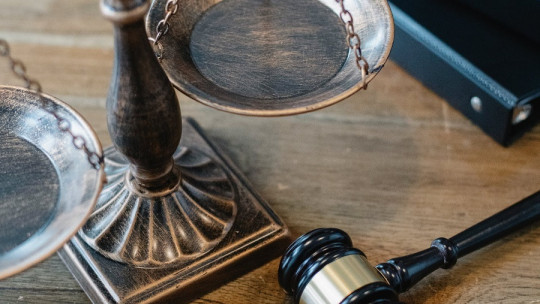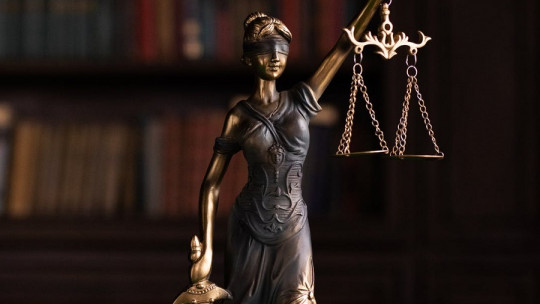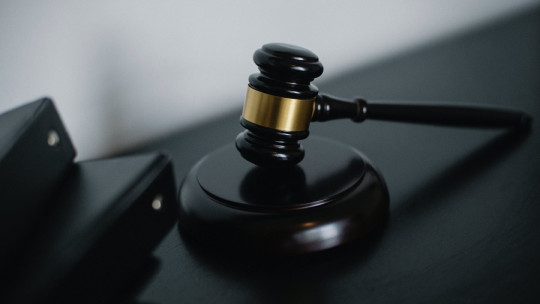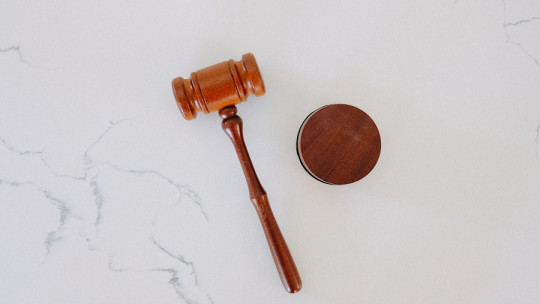There are many occasions in which people find themselves involved in situations related to justice In most of these cases, those affected look for a lawyer to take their case and defend them.
However, on many occasions it is necessary to carry out a psychological expert report to provide forceful and conclusive elements that help the Judge in his sentence. Thus, it is necessary to understand what the work of a legal-forensic psychologist is and how he can help us.
Legal psychology is responsible for the study, evaluation and advice of behavioral psychological phenomena that are related to the behavior of people in the legal field. Thus, legal psychology is an area of psychology that is responsible for the study of behaviors, psychological and relational phenomena of people in the field of law, justice and the law.
Within legal psychology there are many areas of work. Among the different areas of analysis and intervention we find prison psychology, police psychology, psychology of crime, judicial mediation, victimology, family psychology, minors, labor law, criminal law, etc. Thus, the legal psychologist develops different functions depending on the area of work.
What is a psychologist expert?
An expert psychologist studies and evaluates the individual and his or her behavior psychologically in a judicial context This professional is specialized and has the capacity and experience to provide a technical psychological opinion that can help the judge in his sentence. The role of the legal-forensic psychologist is to assess the personality and psychological symptoms of individuals in this legal field.
How does a psychologist expert act in a judicial process?
In a judicial procedure, the expert psychologist can act in different ways depending on the needs. Between them;
The expert report can be requested by a judge or magistrate, by the public prosecutor’s office, by the affected person or by a lawyer. This report must respond to the demand requested as necessary proof.
What is an expert psychologist for?
An expert psychologist is responsible for providing his or her knowledge about events related to the psychological environment Among the actions it carries out you can find:
When should I look for a psychologist expert to prepare a forensic report?
Forensic psychologist Marta Garrido, from the Málaga Psicoabreu Psychologists’ Office, explains how we can detect when it is necessary to carry out a psychological expert report. It may be necessary in any of these situations:
1. Divorce and child custody cases
The most frequent situations are cases of separation, divorce and custody of minors The forensic psychologist advises on aspects related to separation, evaluates the family situation and parental capacity and establishes the most beneficial type of custody and visitation regime for minors. In addition, the professional also assesses whether it is necessary to modify the custody and visitation regime. On other occasions, the psychologist can act as a mediator to seek an agreement between the parents.
2. Cases of abuse
When a person suffers abuse, violence, sexual assault or similar, the expert psychologist evaluates the symptoms and psychological consequences as a consequence of the events experienced (victims). In the case of alleged aggressors, he evaluates whether there are mental personality disorders that have led them to carry out the criminal act. He assesses whether there is moral damage and the credibility of testimony in minors.
3. Conflicts in the school or work environment
Problems caused in the school or work environment The forensic psychologist will evaluate the victim to establish whether she has suffered bullying (school bullying), mobbing (workplace bullying) or burnout (workplace stress) and what are the consequences generated by these situations.
4. Accidents
In the event of an accident, psychological consequences may appear that affect your daily life (family, social, work, personal). The forensic psychologist will focus his work on assessing the psychological symptoms and their severity using specific techniques, this psychological state being caused by the accident. In addition to assessing the damage and deterioration that it has caused (how it affects the different areas of your life).
5. Psychological consequences
In assessment of psychological sequelae, incapacitations due to suffering from illness or due to not having volitional and cognitive capacity.
6. Moral damage
In cases of moral damage (life, honor, dignity, reputation, self-image, social esteem, physical and mental health). For example: deception in parenthood (discovering that it is not your child), related to suffering from a stressful situation for a long time, etc.
7. Disability
In cases of determination of permanent disability. For example, people who suffer from a personality disorder, a psychological condition caused by a physical illness, etc.
8. Counter-examination
Counter-examination. Psychological counter-examination can be useful on many occasions. When there is an expert report and there are doubts regarding the procedure and the application of the methodology, it may be necessary to prepare another expert report using the methodology correctly. These reports can be prepared in any area (criminal, civil, labor, etc.).
Whatever the forensic psychologist’s assessment, the psychological expert report must have verifiable and defensible evidence, having coherent content and objective arguments. Thus, the judicial report will have relevance for the judge’s decision-making. The professional from the Málaga Psicoabreu Psychologists office recommends that you look for a forensic psychologist if you find yourself or want to start a judicial process where any of the situations mentioned above exist or another where there is psychological damage.









